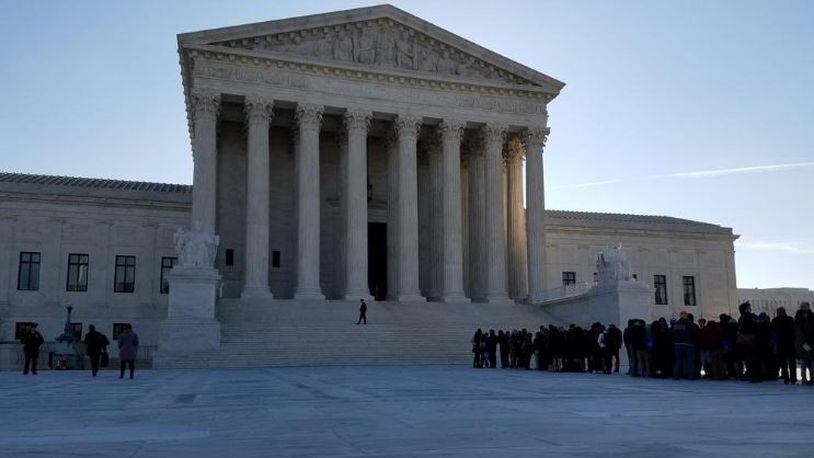"I cannot support advancing this nomination," said Sen. Patrick Leahy (D-VT), as he joined other Democrats in vowing to block Gorsuch.
Republicans made clear their dismay at the move by Democrats, as the GOP signaled that they would use the "nuclear option" this week to change the Senate rules, and do away with the need to get 60 votes to advance a Supreme Court nominee.
"This will be the last person that will be subject to a filibuster," said Sen. Lindsey Graham (R-SC), as he bluntly told Democrats they were making a strategic error that will change the Senate.
"I think Neil Gorsuch is a great pick by a conservative President, and will be a great member of the court," Graham added.
"His record on the bench has proved the judge falls well within the mainstream," said committee chair, Sen. Charles Grassley (R-IA).
"This man is a thoroughbred," said Sen. Luther Strange (R-AL).
Democrats saw the exact opposite, as they joined to say they would use the filibuster - one last time on a Supreme Court nomination.
"Unless we were asking about fishing or basketball, Judge Gorsuch stonewalled, and avoided any substantive response," said Sen. Leahy (D-VT), who labeled the judge, "excruciatingly evasive."
"One could not see where he stood, even on big and long settled cases," said Sen. Dianne Feinstein (D-CA), the top Democrat on the Judiciary Committee.
This showdown isn't the first time that the rules have been changed on nominations, as it was in late 2013 that Democrats - frustrated at GOP delays on nominees of President Obama - altered the rules to do away with the 60 vote threshold for all nominations, except for the Supreme Court.
Now, the GOP is poised to remove the exception for the Supreme Court later this week.
The dispute led members of both parties to express their disappointment that the Senate has reached this point.
"I wish, Mr. Chairman, that we would instead change the behavior of Senators, rather than change the rules of the Senate," said Sen. Jeff Flake (R-AZ), who reminded Senators that no filibuster was used against Justice Clarence Thomas in 1991, when he was approved by a narrow margin, or against Judge Robert Bork, who was defeated on the Senate floor in 1987.
"I think it is obvious that the Senate is not a healthy institution," said Sen. Ben Sasse (R-NE), as he bemoaned the pointed debate over Gorsuch.
"That is not something because of the last six months or two years," Sasse said. "It's been a long time coming, and I'm sad about that."
Through the history of the Senate, the filibuster has been used at times to derail Supreme Court nominees; it last happened in 1968, when President Lyndon Johnson tried to elevate Justice Abe Fortas to Chief Justice, but Senators of both parties joined to block that move.
A change in the Senate rules later this week would turn a Supreme Court nomination into a simple majority vote to put someone on the bench.
Democrats used the nuclear option in 2013 to change the rules on Cabinet nominees, and regular federal judges – but left the 60 vote requirement in place for the Supreme Court.
Democrats also vented their frustration about not being able to fill this vacancy last year, when Republicans refused to hold hearings or votes on the choice of federal appeals court judge Merrick Garland by President Barack Obama.
"Democrats, including me, are still furious at the way Merrick Garland was treated last year," said Sen. Chris Coons (D-DE).
"I am still angry about the treatment of Merrick Garland," said Sen. Richard Blumenthal (D-CT).
But the voters did not exact any retribution on Republicans in the 2016 elections over their refusal to act on Garland's nomination, as Neil Gorsuch now stands just a few days away from being confirmed by the Senate for the U.S. Supreme Court.
About the Author
